The Safest Places To Retire Outside the U.S. — And What It Will Cost You
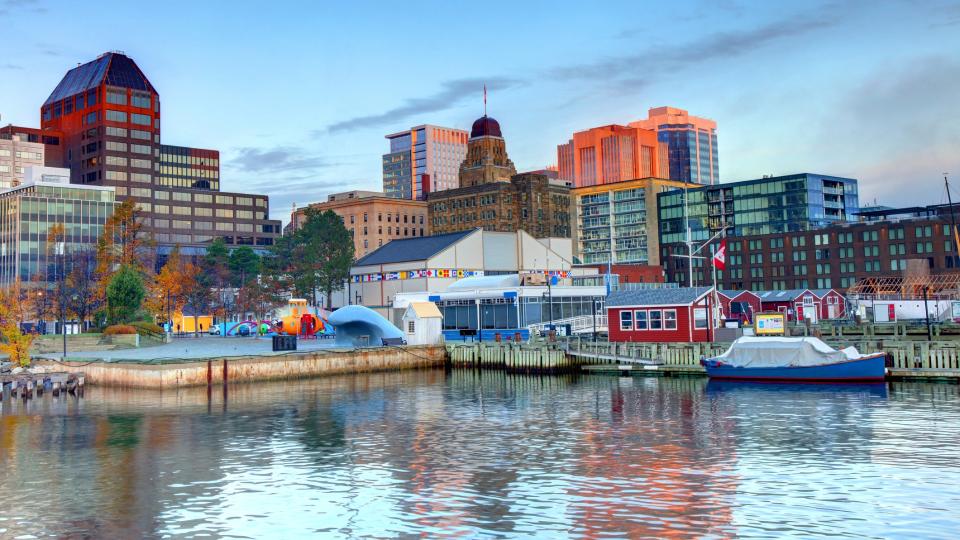
Among the reasons people choose a retirement destination, safety usually ranks near the top, along with affordability, access to healthcare, housing options and climate. For those who want to retire abroad, safety is often a primary consideration — and one that has taken on added importance in an increasingly unstable world.
Trending Now: Kevin O’Leary: 5 Retirement Planning Tips He Swears By
For You: One Smart Way To Grow Your Retirement Savings in 2024
According to the World Economic Forum’s “Global Risks Report 2024,” there is a “deteriorating global outlook” in terms of threats to safety. The Israel-Hamas war that erupted beginning in October 2023 has contributed to a sense of unease not only in the Middle East but many other regions of the world. That’s also the case with the ongoing Russia-Ukraine war.
Beyond armed conflicts, much of the globe has suffered from record-breaking heat conditions, drought, wildfires and flooding, as well as social polarization, violent protests, riots and strikes. A majority of respondents polled by the WEF anticipate “some instability and a moderate risk of global catastrophes.”
For seniors who want to retire abroad, a good resource is the Institute for Economics and Peace’s Global Peace Index. It ranks nations based on criteria such as violent crime, internal conflict, homicides, access to weapons, political instability, violent demonstrations, terrorist activity, the population of imprisoned people, safety and security and militarization.
The United States doesn’t fare well in the latest index, with a ranking of No. 157. Only one top pick is in North America — and it isn’t Mexico, which ranks behind the U.S. at No. 162.
Here’s a look at the safest places to retire and how much they might cost based on various media and data sources. All costs are in U.S. dollars. Keep in mind that the estimated costs are countrywide averages, and costs will be much higher or lower depending on where you live.
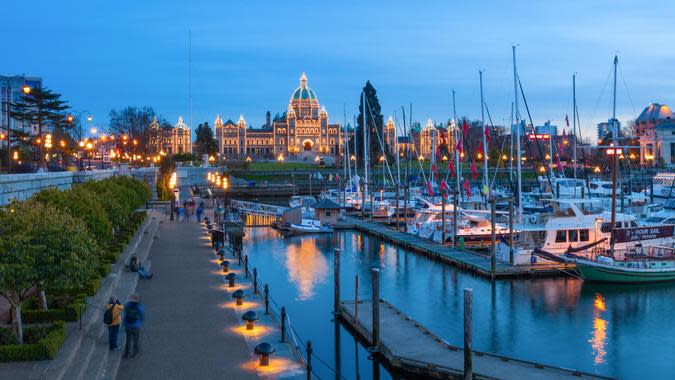
Canada
If you’re looking to retire abroad but not overseas, good news. You can drive to one of the safest countries in the world — just make sure you head north and not south.
Canada ranks No. 11 on the Global Peace Index. It’s a politically stable country with very low violent crime, internal conflict or conflict-related deaths. It ranks very high in safety and security and very low in militarization and displaced people.
The average cost of living in Canada is about $2,330 per month.
Be Aware: 6 Changes Coming to Social Security in 2024 and Who Could Be Affected Most
Explore More: Cutting Expenses in Retirement: 6 Home Items to Stop Buying
Sponsored: Credit card debt keeping you up at night? Find out if you can reduce your debt with these 3 steps
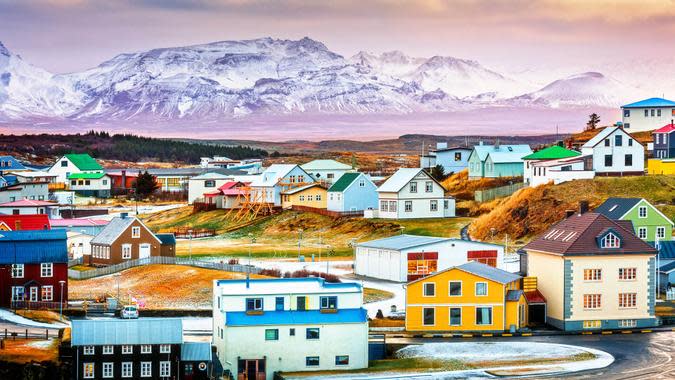
Iceland
Canada might be closest; but, if you sail east a little more than halfway between North America and Northern Europe, you’ll hit Iceland, which has claimed the title of the safest country in the world every year since the mid-2000s.
Yes, it brushes up against the Arctic Circle, and yes, the alphabet gets a little weird if you’ve lived stateside your whole life. But there’s a whole lot to like about the island nation, which, like Canada, is one of the colder countries on the list. Aside from its famous geothermal pools and astonishing natural beauty, Iceland also lands at or near the top of the rankings for the world’s happiest countries year after year as well.
The average cost of living in Iceland for a single person is about $1,290 a month, not including rent.
Find Out: 6 Things Retirees Shouldn’t Spend Big Money on While Traveling Abroad
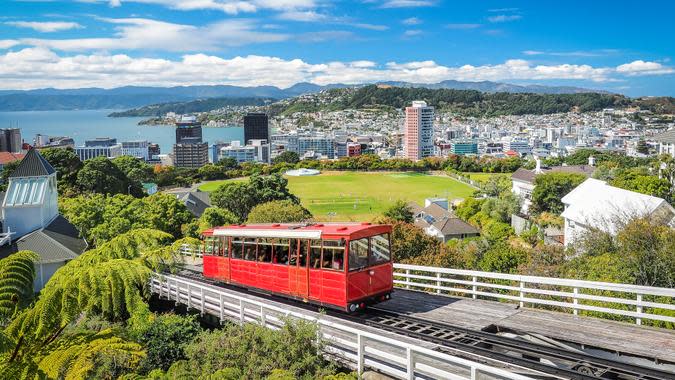
New Zealand
The No. 4 safest country in the world is truly lovely. According to French travel company Evaneos, “New Zealand is a country known for its safety, and the relaxed attitude of the Kiwis will prove it to you.”
The site adds that many locals don’t lock their doors and often keep their engines running when they make a quick stop at the store. Generally, you won’t see people on high alert at night, clutching their handbags or avoiding conversations with strangers.
The average cost of living for a single person in New Zealand is about $2,100 a month when you factor in rent.
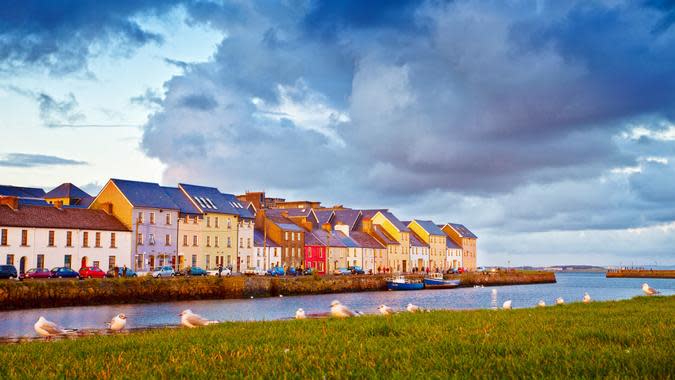
Ireland
Though the country was long known for militarization, ethnic and religious conflict, terrorism and violent demonstrations, those problems are nearly non-issues in modern Ireland. The island can now boast the title of the No. 3 safest and most secure country in the world. On top of that, American retirees who move there would only have to adapt to a slightly different brand of English.
According to Travel Safe Abroad, Ireland was a poor country for much of its history, but after joining the European Union in 1973, it enjoyed a massive influx of foreign investment and became the European base of many multinational companies, making it one of the wealthiest and most stable countries on the continent today.
The average cost of living for a single person in Ireland is about $1,065 a month, not including rent.
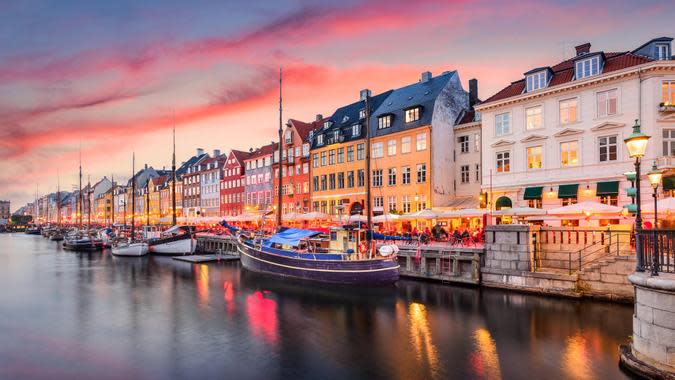
Denmark
Denmark joined the EU the same year as Ireland, and nearly a half-century later, it is one of the statistically safest countries in the world. However, the U.S. government recently warned of a heightened risk of terrorism in the tiny Nordic kingdom.
Beyond that, though, homicides and other violent crimes, militarization, political instability, violent demonstrations and other red flags exist only as the rarest of outliers. Like Iceland and the other Nordic countries, Denmark is a perennial presence near the top of the list of the world’s happiest countries — as well as the safest.
The average cost of living for a single person in Denmark is about $1,175 a month, not including rent.
Check Out: $2 Million in Retirement Savings — Here’s How Much You Could Withdraw Per Year
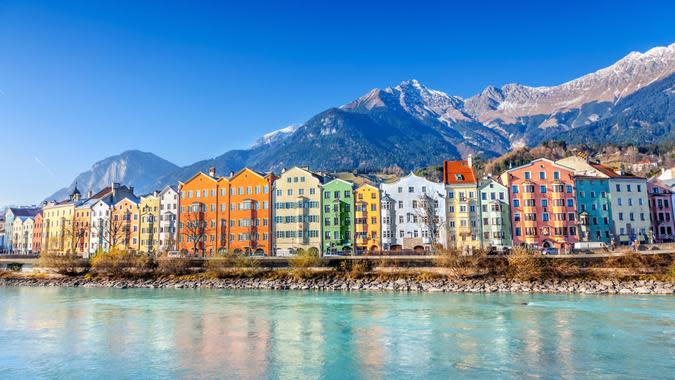
Austria
Rounding out the five safest countries in the world, Austria is both beautiful and peaceful.
According to the U.S. Department of State, “Austria is a free and stable democracy with a social market economy,” and “Austria and the United States are partners in promoting global security, strengthening economic cooperation, and collaborating to promote and defend our shared values around the world.”
The average cost of living for a single person in Austria is about $1,715 a month.
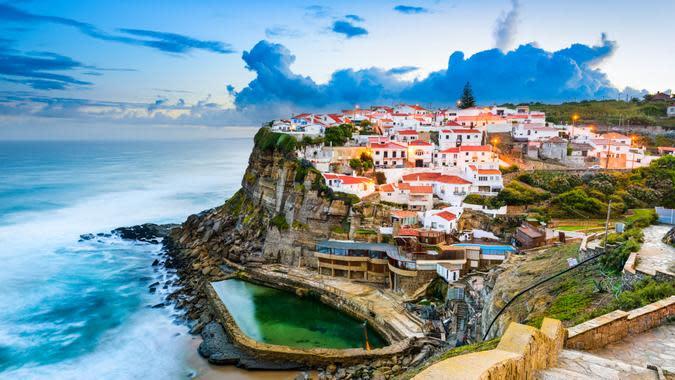
Portugal
Back over to Western Europe, Portugal is the No. 7 safest country in the world.
Despite its impressive ranking, Portugal has actually slipped a little. It was ranked No. 3 behind only New Zealand and Iceland in 2020, and in 2021 Portugal took the No. 4 spot.
The average cost of living for a single person in Portugal is about $718 a month, not including rent.
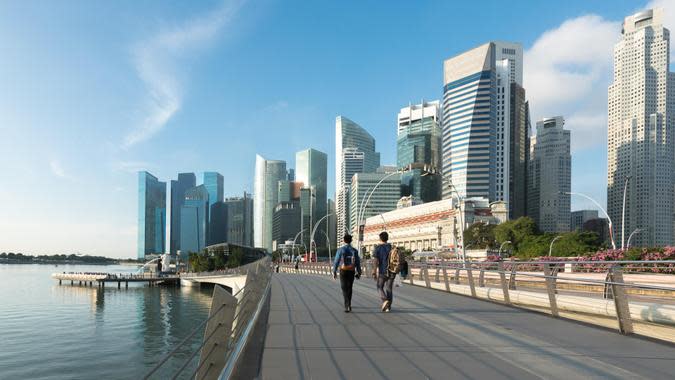
Singapore
If you’re looking to retire somewhere safe in the East, Singapore is one of your best options. It ranks as the No. 6 safest country on Earth.
According to relatively recent Singapore Economic Development Board data, the country ranks No. 1 in all of Asia for quality of living. It’s also the second safest city in the world and the best place in Asia for expats to live. It cites Gallup data showing that 94% of Singapore residents feel safe walking alone at night compared to 69% worldwide. It credits this to “consistently low crime rates, a transparent legal system, and a reliable police force supported by proactive citizens.”
The average cost of living for a single person in Singapore is about $1,131 a month, not including rent.
Read Next: Are You a ‘Wealthy’ Retiree? How To Tell if You’re in the 1% Without a Salary
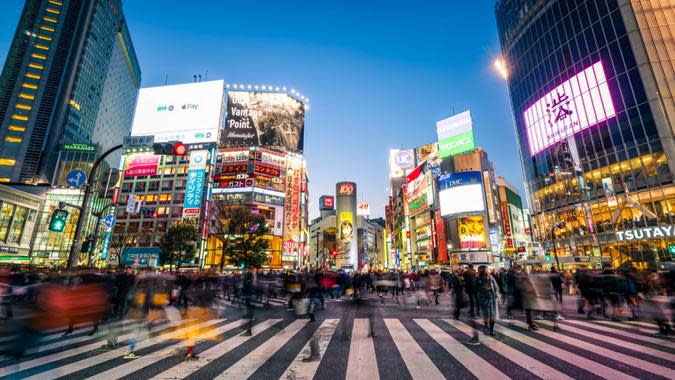
Japan
Japan holds the No. 9 spot in the ranking of the world’s safest countries. Japan routinely ranks near the top of the list thanks to low crime rates, including both violent crimes and property crimes.
According to Intrepid, the biggest danger there comes not from criminals, but from Mother Nature. Not only is Japan prone to typhoons, but its location in the Ring of Fire makes it susceptible to devastating earthquakes and tsunamis.
The average cost of living for a single person in Japan is $841 a month, not including rent.
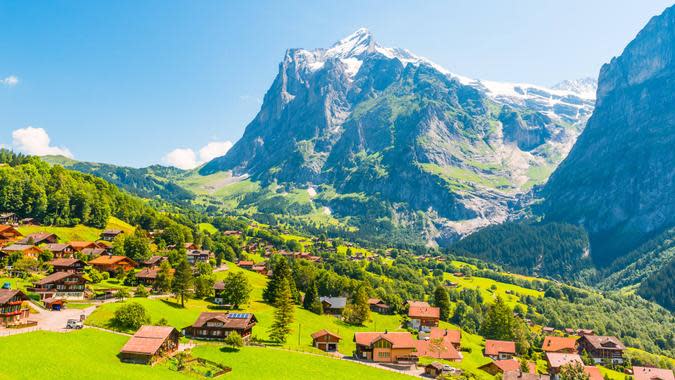
Switzerland
Rounding out the list is Switzerland, which takes the No. 10 spot on the Global Peace Index. It’s long been known for stunning mountain scenery and other natural beauty, a generally pleasant and welcoming local population, rich cultural history and very low crime.
In fact, many villages are virtually crime-free.
The average cost of living for a single person in Switzerland is about $1,670 a month, not including rent.
More From GOBankingRates
This is One of the Best Ways to Boost Your Retirement Savings in 2024
6 Things You Should Never Do With Your Tax Refund (Do This Instead)
Vance Cariaga contributed to the reporting for this article.
This article originally appeared on GOBankingRates.com: The Safest Places To Retire Outside the U.S. — And What It Will Cost You

 Yahoo Finance
Yahoo Finance 